Comprehensive AC Repair Services for Your Home and Office
Introduction to AC Repair Services
When it comes to ensuring the comfort of your home or office, AC repair service plays a vital role in maintaining your system’s efficiency and longevity. Whether you’re facing an issue with your current unit or are looking for a professional installation, our services are designed to keep your air conditioning system running smoothly.
From fixing minor issues like dirty filters to more complex repairs like refrigerant leaks or electrical faults, expert technicians are equipped with the knowledge and tools to resolve a wide range of air conditioning problems. Regular servicing and prompt repairs ensure that your air conditioning unit performs at its best, providing consistent comfort during the hottest months of the year.
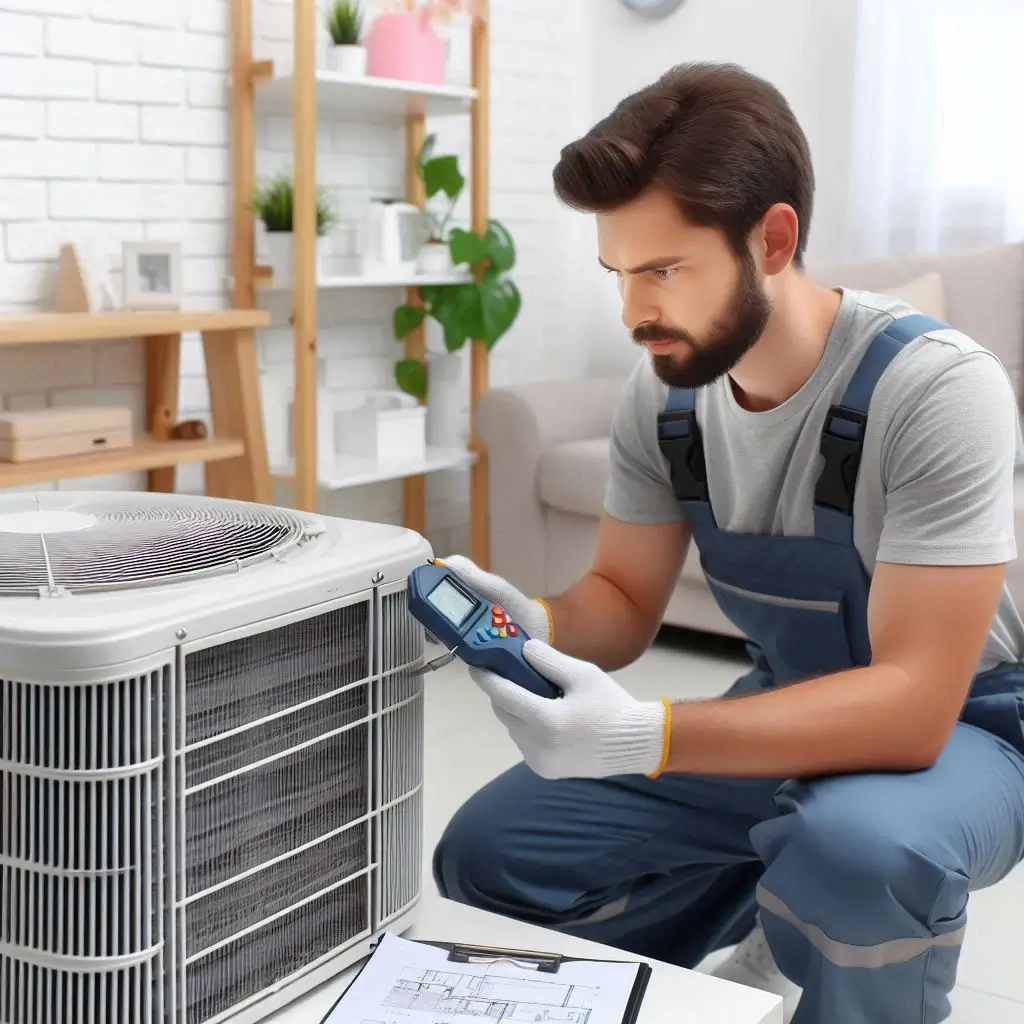
Importance of Professional AC Repair
AC units are intricate systems with multiple components working together to provide cool air. When one part fails or becomes inefficient, it can affect the overall performance of the unit. It’s important to hire a professional for AC repair for several reasons:
-
Expert Diagnosis: Professionals have the skills to accurately diagnose problems, whether it’s a refrigerant leak, electrical fault, or mechanical issue. DIY repairs can often lead to more damage, requiring costly repairs down the line.
-
Proper Tools and Equipment: Licensed HVAC technicians have access to specialized tools and equipment that ensure repairs are done correctly the first time.
-
Safety: AC systems often involve electrical components and refrigerants, which can be hazardous. Professionals follow safety protocols to prevent accidents and ensure your system is safe to operate.
-
Warranty Protection: Hiring a certified technician ensures that your warranty remains intact, as some manufacturers require professional service for repairs.
-
Long-Term Savings: Professional repairs are likely to save you money in the long run by improving the efficiency of your AC unit and reducing the chances of needing frequent repairs.
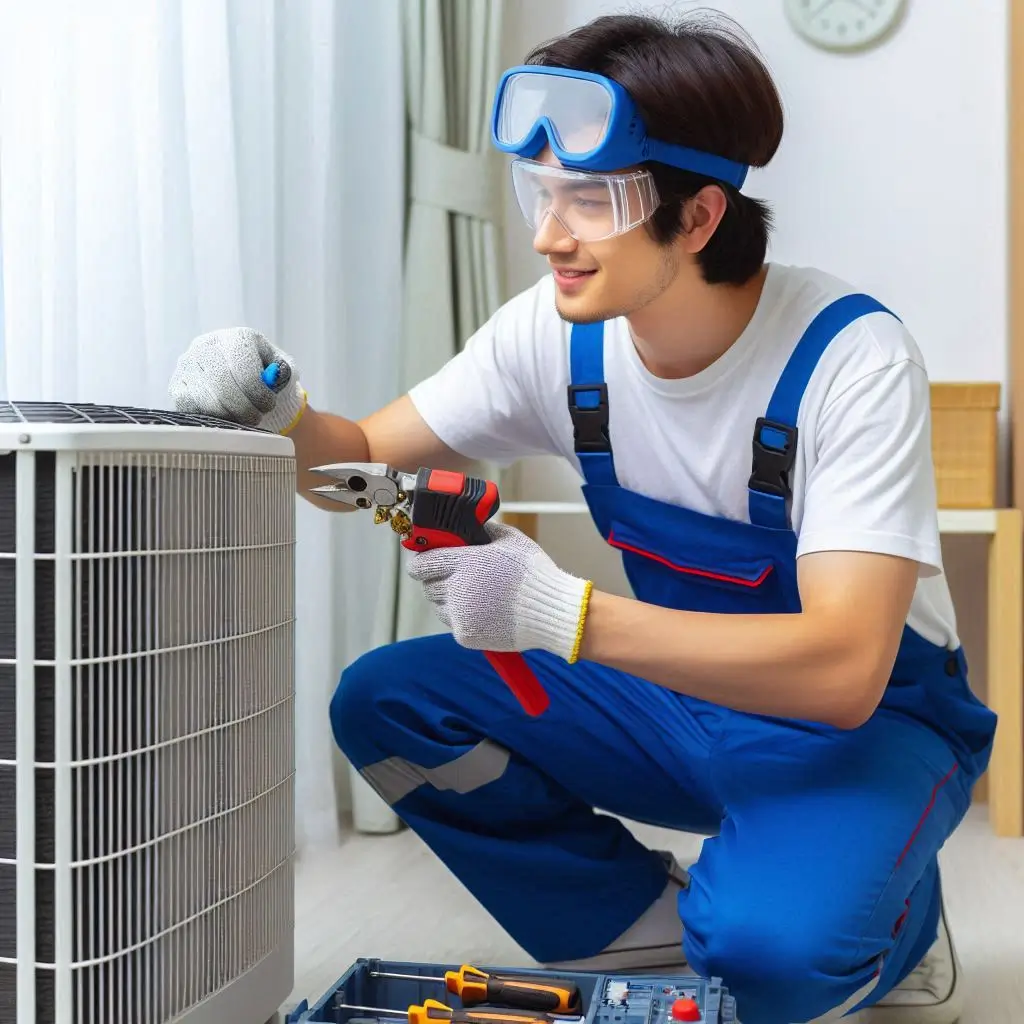
Benefits of Timely Repairs for AC Units
Timely repairs are crucial for maintaining the efficiency and longevity of your air conditioning system. The longer you wait to address minor issues, the more severe and costly the problems can become. Below are key benefits of scheduling AC repair services as soon as you notice an issue:
-
Prevents Major Breakdowns: Small issues like a clogged filter or low refrigerant levels can escalate into serious problems, such as compressor failure or complete system breakdown. Timely repairs prevent these bigger, more expensive issues from arising.
-
Improved Energy Efficiency: A well-maintained AC unit runs more efficiently, leading to lower energy bills. Repairing minor issues like dirty coils, refrigerant leaks, or malfunctioning thermostats ensures that your system operates at its peak efficiency.
-
Enhanced Comfort: Timely repairs guarantee that your air conditioner is cooling your space properly. If your AC unit is underperforming due to a minor issue, it may not cool your home or office efficiently, leaving you uncomfortable during hot weather.
-
Extended Lifespan: Regular repairs and maintenance can prolong the life of your air conditioning unit, saving you the cost of replacing the system prematurely.
-
Environmental Impact: Leaking refrigerants can harm the environment. Addressing leaks early on reduces your carbon footprint and helps the environment by minimizing refrigerant loss.
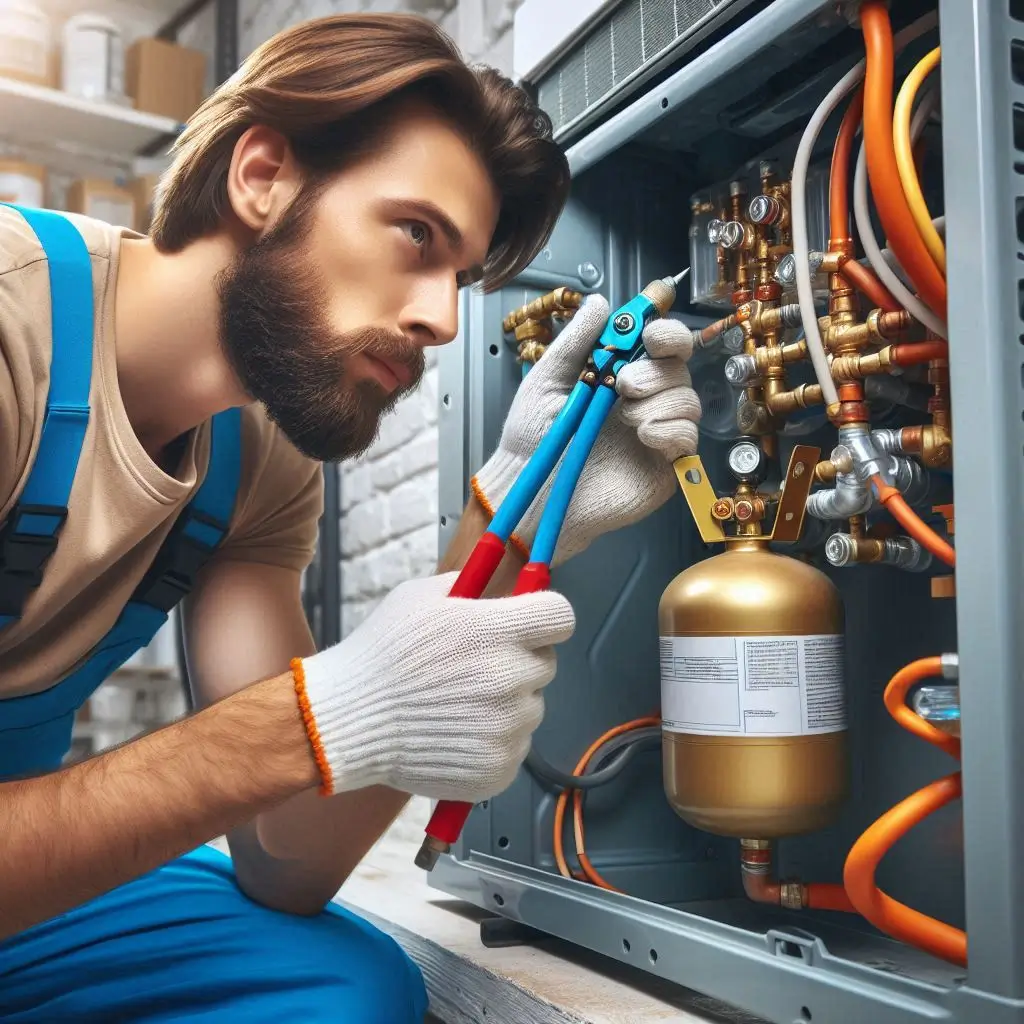
AC Installation and Repair Services to Keep You Cool
Why Professional Installation is Crucial for Your AC
Proper AC installation is crucial for ensuring that your air conditioning unit operates efficiently and effectively throughout its lifespan. A professional installation provides several key benefits:
-
Optimal Performance: A correctly installed air conditioning system will perform at its best, cooling your home or office efficiently. Improper installation can lead to reduced performance, causing the unit to work harder and consume more energy, which raises your utility bills.
-
Extended Lifespan: Professional installation ensures that your AC system is set up correctly, reducing wear and tear on the components. This leads to fewer breakdowns and extends the life of the unit, which can be costly to replace prematurely.
-
Safety: Installing an AC system involves electrical connections and refrigerant handling, both of which can pose safety hazards if not done properly. A licensed HVAC technician follows safety protocols to prevent accidents and ensure the unit is safely operating.
-
Warranty Protection: Many air conditioning manufacturers require professional installation for their warranty to remain valid. DIY installation or hiring an unqualified technician can void your warranty, leaving you unprotected in case of a malfunction.
-
Energy Efficiency: Professional installers ensure that your AC system is calibrated correctly, improving energy efficiency. This results in lower energy consumption and reduced environmental impact.
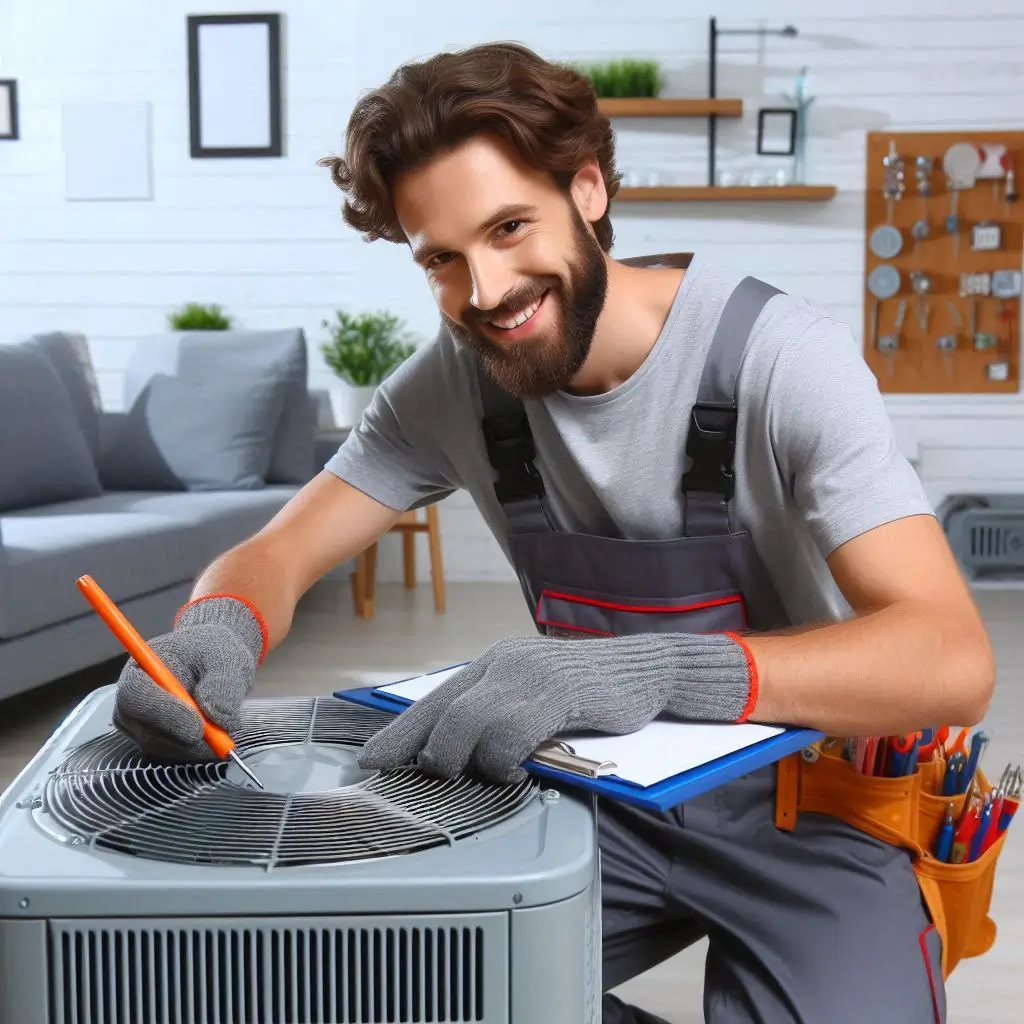
Common Installation Issues and How to Avoid Them
AC installation is a delicate process, and many common issues can arise if it’s not done correctly. Below are some of the most common installation issues and tips on how to avoid them:
-
Improper Sizing: One of the most common installation mistakes is choosing the wrong size unit for your space. An AC unit that is too small will struggle to cool your space, while one that is too large will waste energy and cycle on and off too frequently. Always consult with a professional to determine the correct size based on your space’s square footage, insulation, and other factors.
How to Avoid: Hire a professional HVAC technician who will perform a load calculation to determine the proper size for your unit.
-
Incorrect Refrigerant Charge: Improper refrigerant levels can cause your AC to underperform or even fail. Too much refrigerant can damage the system, while too little can prevent it from cooling efficiently.
How to Avoid: Ensure that your technician checks refrigerant levels during installation and charges them to the manufacturer’s recommended levels.
-
Poor Ductwork Connections: If the ductwork is improperly connected to your AC unit, it can lead to poor airflow and inefficiency, making your system work harder than necessary.
How to Avoid: Professional technicians inspect and ensure that all ducts are properly sealed and connected to maximize airflow.
-
Inadequate Drainage: Improper drainage of the condensation from your AC unit can lead to water damage and mold growth. If the drain line isn’t installed at the correct angle, it can cause water to back up inside the system.
How to Avoid: Professional installers check the drainage system to make sure it’s sloped correctly, preventing water from collecting inside the unit.
-
Electrical Issues: AC systems rely on complex electrical wiring, and improper installation can cause electrical failures or even pose a fire hazard.
How to Avoid: Hire a qualified technician who understands the electrical components and can safely install the system.
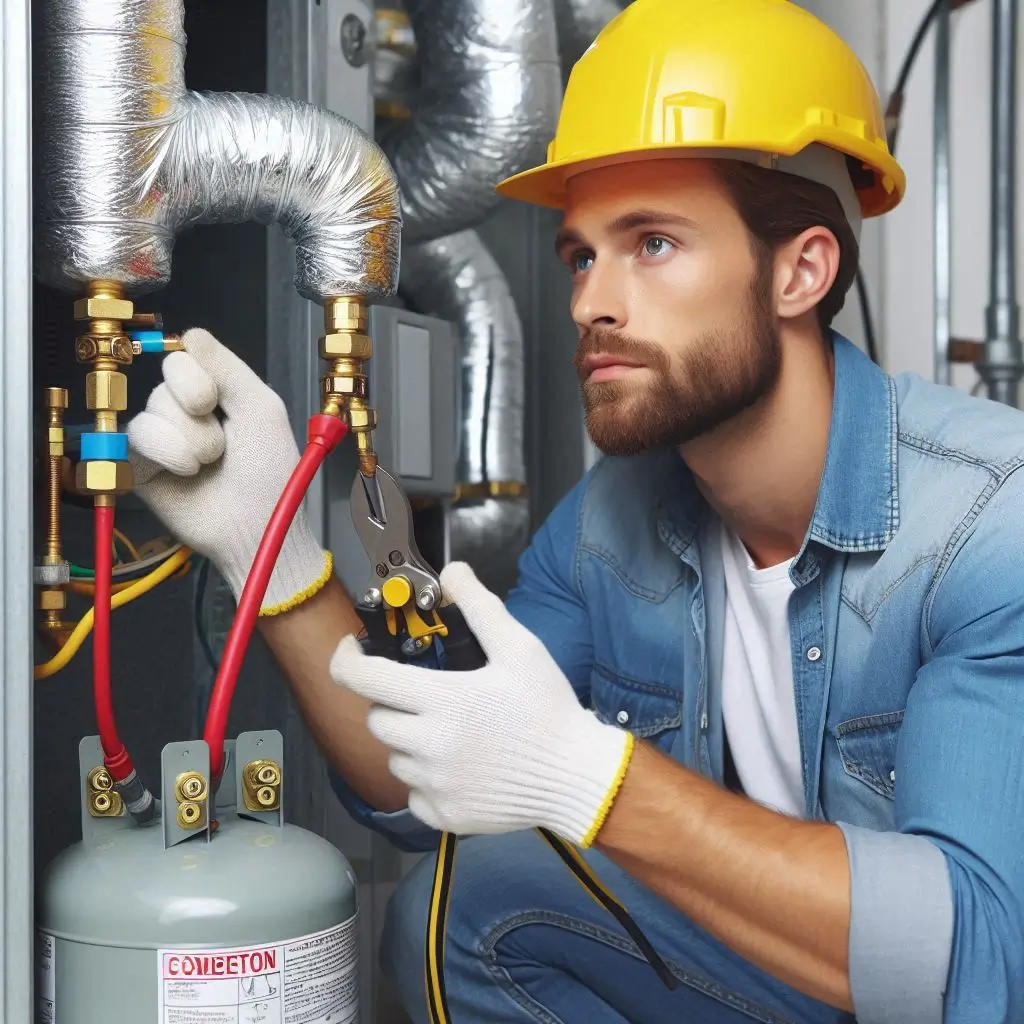
How to Identify When Your AC Needs Repair After Installation
Even after a professional installation, your AC system may require repairs over time. Identifying issues early can prevent more serious problems down the line. Here’s how to spot when your AC needs repair:
-
Insufficient Cooling: If your AC system is running but not cooling your home effectively, it could be a sign of an underlying issue such as a refrigerant leak, clogged air filters, or faulty components.
How to Identify: Pay attention to the temperature inside your home. If the unit runs constantly but the temperature remains uncomfortable, it’s time to schedule a repair.
-
Strange Noises: Unusual sounds like rattling, buzzing, or grinding noises coming from your AC system could indicate mechanical problems, loose parts, or issues with the compressor.
How to Identify: Listen closely to your AC unit during operation. If you hear strange sounds, it’s important to call a technician right away to prevent further damage.
-
Water Leaks: If you notice water pooling around the base of your AC unit, it may be a sign that the drain line is clogged or there’s an issue with the unit’s refrigerant.
How to Identify: Check for water leaks regularly, especially after the unit has been running for a while. If you see any, it’s best to call for repair services to avoid water damage.
-
Unpleasant Odors: Foul odors, such as moldy or burning smells, indicate that there is an issue with your AC system. Mold can develop if there is moisture buildup inside the unit, while burning odors could mean electrical problems.
How to Identify: If you smell any unusual odors coming from your AC vents, turn off the system immediately and have it inspected by a professional.
-
Frequent Cycling On and Off: If your AC unit is frequently turning on and off, it could indicate issues with the thermostat, electrical components, or airflow. This can cause the system to wear out more quickly.
How to Identify: Notice how often your unit cycles. If it seems to be short-cycling, a professional should inspect it to prevent future damage.
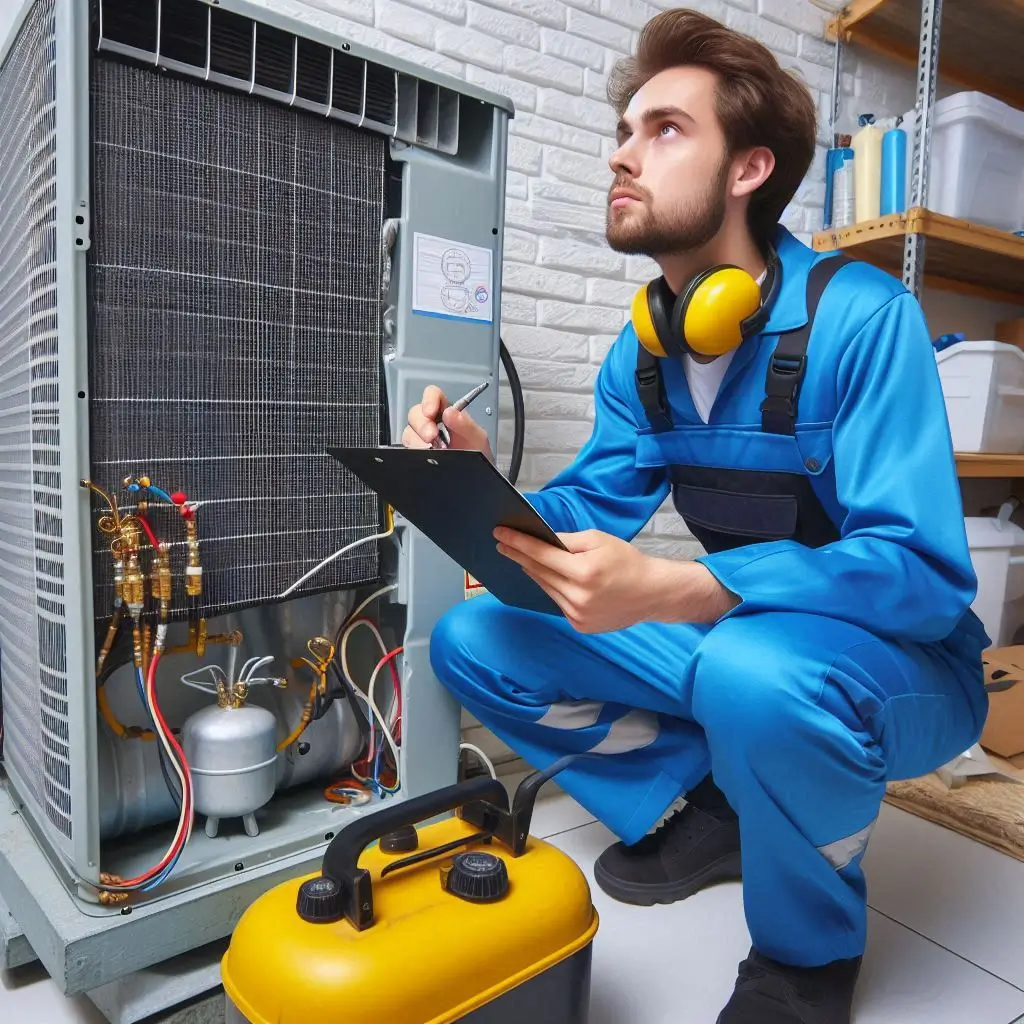
General AC Maintenance to Prevent Breakdowns
Regular Maintenance Tasks for Optimal AC Performance
Regular maintenance is crucial for ensuring that your air conditioning unit operates at its peak performance, providing reliable cooling and avoiding unexpected breakdowns. Below are some of the essential maintenance tasks that should be performed on your AC system:
-
Cleaning and Replacing Air Filters: Air filters trap dust, dirt, and debris, preventing them from entering the AC unit. Over time, these filters can become clogged, reducing airflow and efficiency. Regularly cleaning or replacing your air filters ensures that your AC operates smoothly and efficiently.
Frequency: Check and replace or clean air filters every 1-3 months, depending on the type of filter and the environment in which the AC operates.
-
Cleaning the Coils: The evaporator and condenser coils in your AC unit play a crucial role in heat exchange. Dust and dirt can accumulate on these coils, reducing their efficiency. Cleaning the coils helps the unit run efficiently and reduces the risk of breakdowns.
Frequency: Clean coils once a year, ideally before the start of the cooling season.
-
Checking Refrigerant Levels: Low refrigerant levels can affect your AC’s ability to cool effectively and put undue stress on the compressor. A technician should check the refrigerant levels during routine maintenance and refill it if necessary.
Frequency: Check refrigerant levels once a year as part of your routine maintenance.
-
Inspecting the Condensate Drain: A clogged condensate drain can lead to water buildup and damage to the unit. Ensure the drain is clear to avoid moisture accumulation and mold growth.
Frequency: Check and clear the condensate drain line at least once per year.
-
Lubricating Moving Parts: The fan and motor in your AC unit need proper lubrication to run smoothly. Lack of lubrication can cause friction and wear, leading to breakdowns.
Frequency: Lubricate moving parts annually to keep them in good working order.
-
Checking Thermostat Settings: Ensuring your thermostat is functioning properly is key to maintaining optimal temperatures and efficient cooling. An improperly calibrated thermostat can cause your AC to run inefficiently, leading to higher energy bills.
Frequency: Check thermostat settings once a year during maintenance.
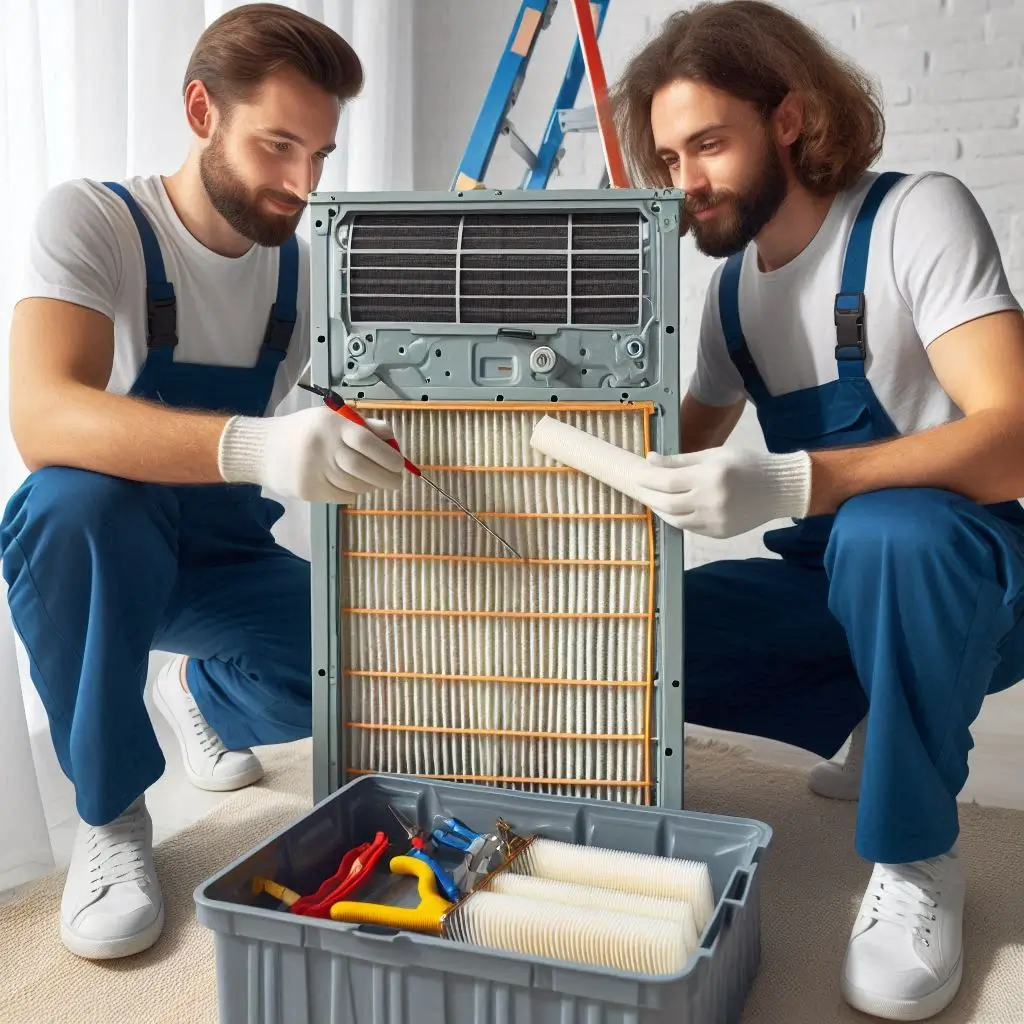
Signs Your AC Needs Maintenance
Your AC system will often give you early warning signs when it’s in need of maintenance. Recognizing these signs early can help prevent costly repairs and extend the life of your unit. Here are some of the most common signs that your AC requires maintenance:
-
Reduced Cooling Efficiency: If you notice that your AC isn’t cooling as effectively as it once did, or if some rooms feel warmer than others, it may indicate that there is an issue with the system that requires attention. This could be due to dirty filters, low refrigerant, or problems with the compressor.
-
Strange Noises: Unusual sounds like grinding, squealing, or banging noises could be a sign of mechanical failure. These noises may indicate a problem with the fan, motor, or other components, requiring professional maintenance.
-
Foul Odors: If you smell musty or burning odors coming from your AC system, it may indicate mold growth, electrical issues, or a refrigerant leak. These problems should be addressed immediately to prevent further damage.
-
Frequent Cycling: If your AC unit turns on and off more frequently than normal, it could be a sign of a problem with the thermostat, compressor, or other internal components. This can cause wear and tear on the system, leading to a breakdown.
-
Poor Airflow: Reduced airflow from the vents can indicate a clogged air filter, dirty coils, or a malfunctioning fan. Low airflow makes it harder for your AC to cool your space efficiently.
-
Water Leaks: Leaking water around the AC unit could indicate a clogged condensate drain or frozen evaporator coils. This requires immediate attention to avoid water damage and mold growth.
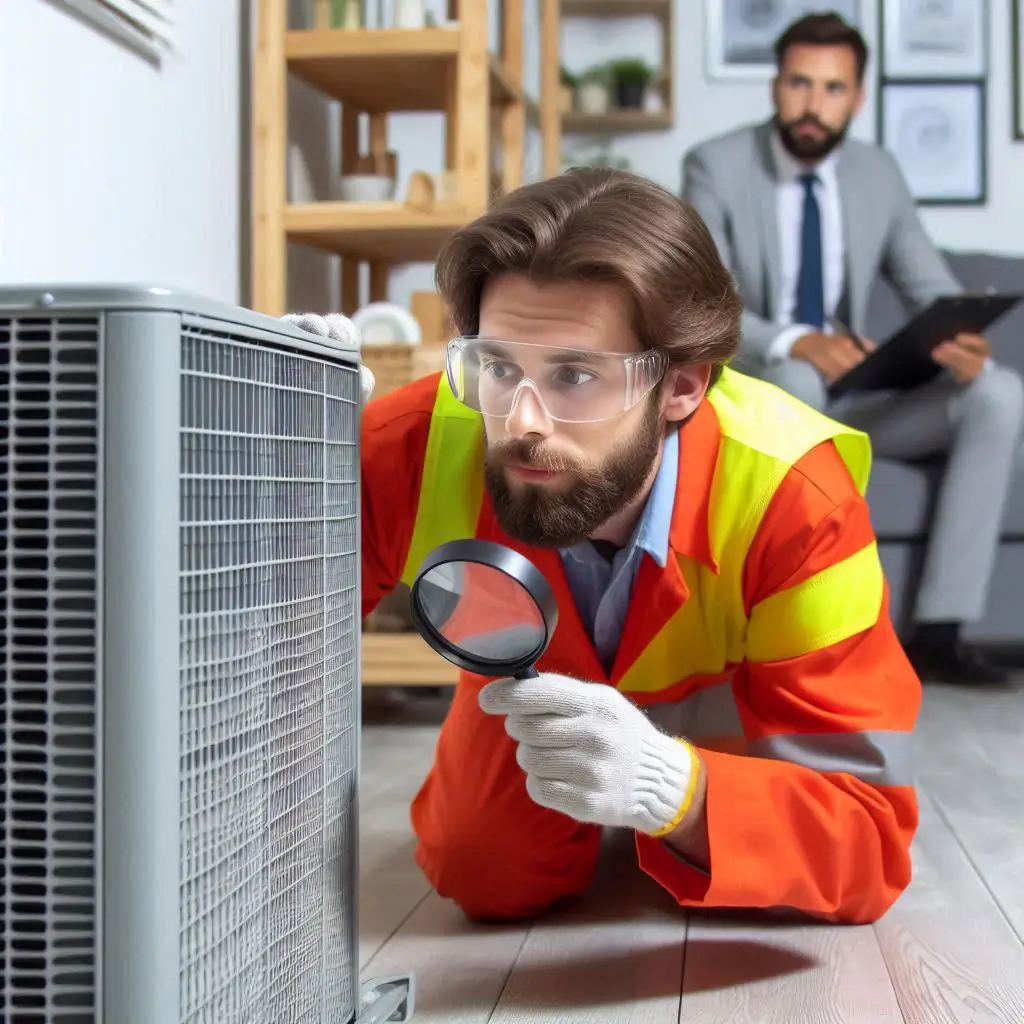
How Maintenance Extends the Lifespan of Your AC Unit
Regular maintenance plays a significant role in extending the lifespan of your air conditioning system. Proper care and upkeep ensure that the unit continues to run efficiently for years. Here’s how maintenance helps extend your AC’s lifespan:
-
Prevents Major Breakdowns: Routine maintenance allows a technician to detect and address small issues before they become major problems. This proactive approach reduces the likelihood of unexpected breakdowns and the need for costly repairs.
-
Keeps Components in Good Condition: Regularly cleaning and maintaining parts like the compressor, coils, and fan ensures that they function properly and last longer. Well-maintained components are less likely to wear out prematurely, which can extend the overall life of the unit.
-
Improves Energy Efficiency: A well-maintained AC unit runs more efficiently, using less energy to cool your home. This reduces the strain on the system and minimizes the chances of overheating or component failure.
-
Reduces Stress on the System: Routine checks help ensure that the system isn’t overworking. Keeping the refrigerant levels and airflow optimal reduces stress on the system, ultimately extending its life.
-
Preserves Warranty: Many manufacturers require regular maintenance to keep warranties valid. Failure to schedule routine maintenance can void your warranty, leaving you responsible for repair costs if the unit breaks down prematurely.
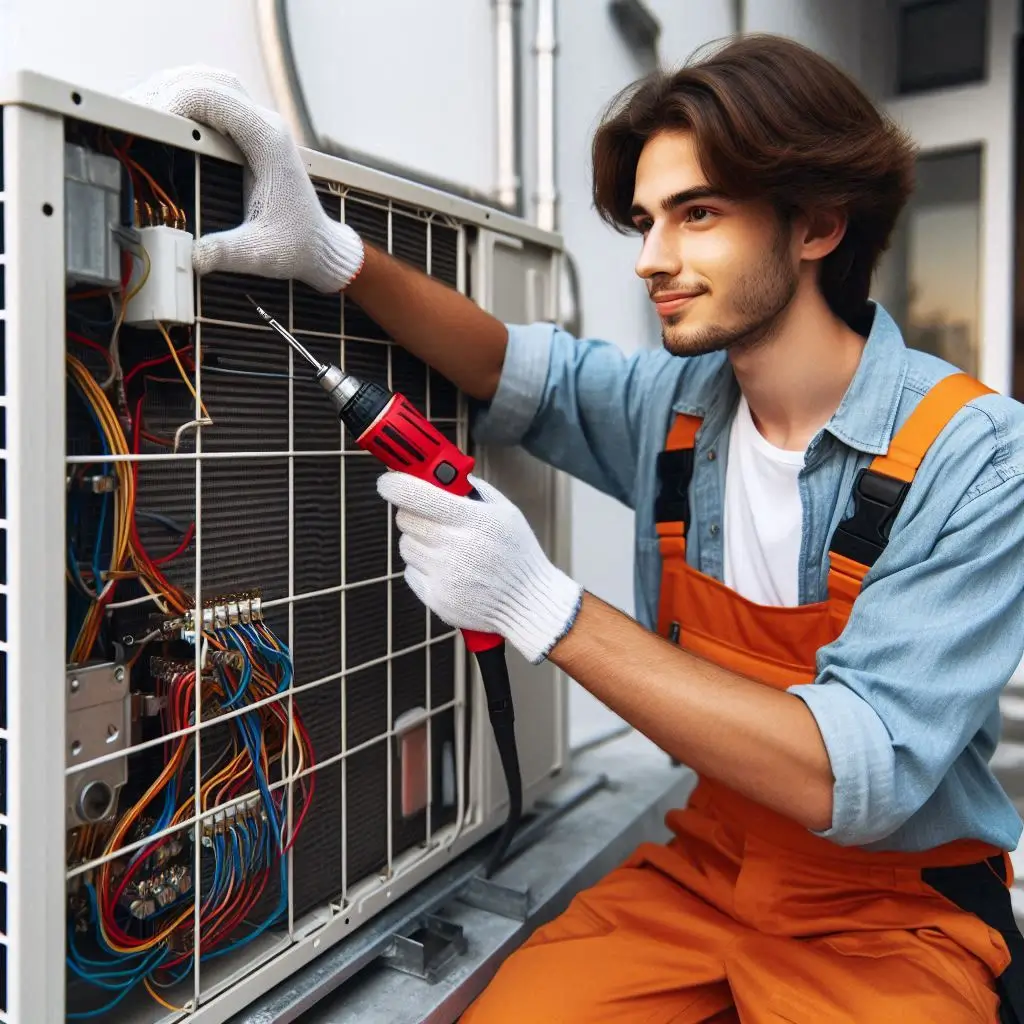
AC Gas Leakage Repair and Efficient Solutions
Common Causes of Gas Leakage in AC Units
Gas leakage in air conditioning systems is a critical issue that can lead to inefficient cooling and increased energy consumption. Understanding the common causes of gas leakage is key to addressing and preventing these problems. Below are the most common reasons why gas leakage occurs in AC units:
-
Damaged or Loose Connections: Over time, the pipes and connections in the AC unit can become damaged due to wear and tear, improper installation, or external forces. Loose connections or cracks in the pipes can result in refrigerant gas escaping from the system.
-
Corrosion and Rust: Corrosion from moisture, dust, or chemicals can weaken the metal parts of the AC system, including the coils and pipes, causing tiny holes or cracks where refrigerant gas can leak out. Rust is particularly common in older systems and in areas with high humidity.
-
Accidental Damage: Physical damage, such as bumps, knocks, or improper handling, can cause the refrigerant lines or coils to rupture, leading to gas leakage. This is especially common in cases where the system has been moved or handled roughly.
-
Manufacturing Defects: Sometimes, AC units may have defects from the manufacturing process that lead to poor sealing or flawed refrigerant lines. These issues can contribute to gas leakage early in the unit’s lifespan.
-
Wear and Tear from Age: As AC units age, seals and components naturally deteriorate. Old units are more likely to experience refrigerant leaks as a result of the wear and tear on key components like the compressor, coils, and refrigerant lines.
-
Improper Installation: When an AC system is installed incorrectly, there’s a higher likelihood of refrigerant leakage. This could be due to faulty connections, incorrect placement, or an improper fit of the components, leading to gas escaping from the system.
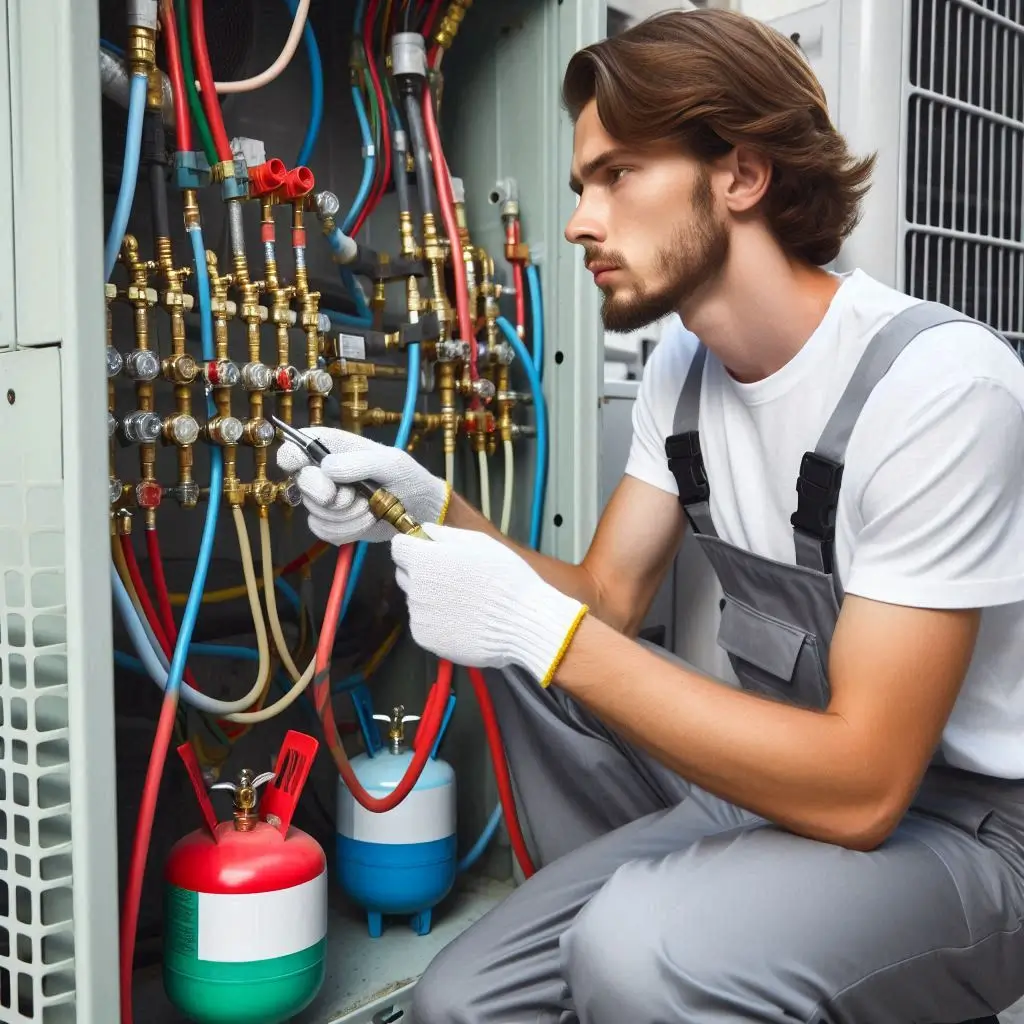
How Gas Leakage Affects Your System and the Environment
Gas leakage from an AC unit can have significant impacts, both on the performance of the system and the environment. Here’s a breakdown of how gas leakage affects your AC and the broader environment:
-
Reduced Cooling Efficiency: Refrigerant gas is essential for the cooling process in air conditioning systems. When there’s a leak, the refrigerant level decreases, and the unit struggles to cool the air effectively. This leads to longer running times, higher energy consumption, and a less efficient cooling system.
-
Increased Energy Bills: As your AC unit works harder to compensate for the loss of refrigerant, it uses more electricity, causing a spike in your energy bills. Even a minor gas leakage can lead to a noticeable increase in your monthly energy consumption.
-
System Overload: Prolonged gas leakage can cause the AC system to work under stress. As the refrigerant level drops, the compressor, which is responsible for circulating refrigerant, becomes overworked. This may lead to system failure, necessitating expensive repairs or even a complete replacement.
-
Environmental Impact: Refrigerant gases, particularly the older R-22 (HCFC-22) refrigerant, can be harmful to the environment. When these gases are released into the air, they contribute to ozone depletion and global warming. Even newer refrigerants, like R-410A, can have negative environmental effects when they escape into the atmosphere.
-
Health Hazards: While the amount of refrigerant gas escaping from a typical leak is not dangerous to human health, large leaks or prolonged exposure in confined spaces can pose risks. Some refrigerants can displace oxygen, leading to suffocation in poorly ventilated areas.
-
Potential Damage to Other Components: Over time, if gas leakage is not repaired, it can lead to further damage in the system. For instance, low refrigerant levels can cause the evaporator coils to freeze, which can ultimately lead to expensive repairs.
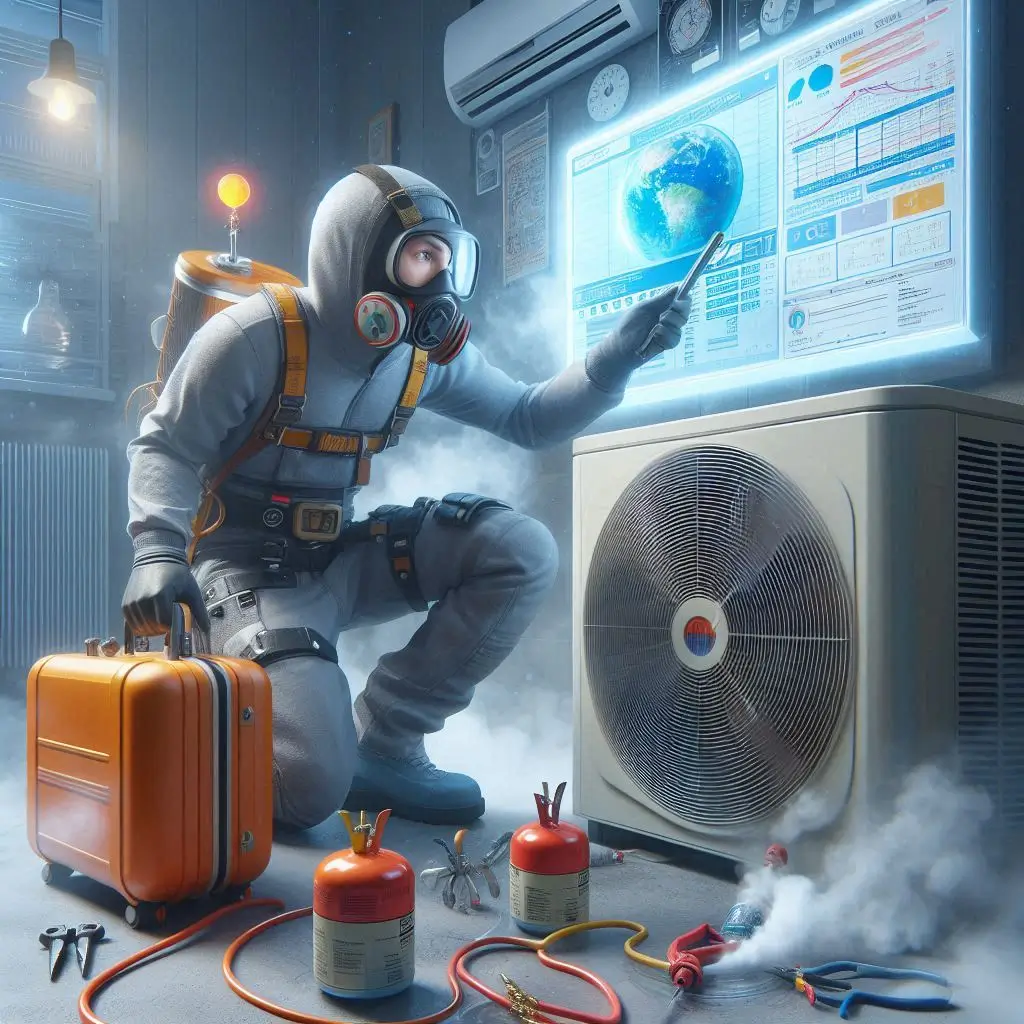
Steps for Professional Gas Leakage Repair
Addressing gas leakage in your AC unit requires professional expertise to ensure a complete and efficient repair. Below are the steps that a trained technician follows to fix refrigerant leaks:
-
Initial Inspection and Leak Detection: The first step in repairing a gas leak is to locate the source of the leak. Technicians use specialized tools like electronic leak detectors, UV dye, and soap solution to pinpoint the location of the leak. These tools help identify even the smallest leaks that are not visible to the naked eye.
-
Evacuating the Remaining Refrigerant: Once the leak is detected, the technician will safely remove any remaining refrigerant from the system. This step is essential to prevent the release of harmful gases into the environment. It also ensures that the system is properly prepared for recharging.
-
Repairing the Leak: Depending on the severity of the leak, the technician will either repair or replace the damaged components. This could involve tightening loose connections, replacing broken seals, welding or replacing damaged refrigerant lines, or addressing corrosion in the pipes or coils.
-
Testing the System: After the repair is completed, the technician will test the AC system to ensure that the leak has been successfully sealed and that the refrigerant is flowing correctly. They will monitor the system for any signs of additional leaks or irregularities.
-
Recharging the Refrigerant: If necessary, the technician will recharge the system with the correct type and amount of refrigerant. This step is essential to restore the AC unit’s ability to cool effectively. The technician will ensure that the refrigerant levels meet the manufacturer’s specifications.
-
Final System Check and Performance Testing: Once the repair and recharge are complete, the technician will perform a final check to ensure the system is working efficiently. They will also check the air temperature and pressure levels to confirm that the AC unit is cooling as expected.
-
Preventive Measures: To avoid future leaks, the technician may provide recommendations for maintaining your AC system, including regular maintenance, periodic checks for leaks, and keeping the unit clean to prevent corrosion.
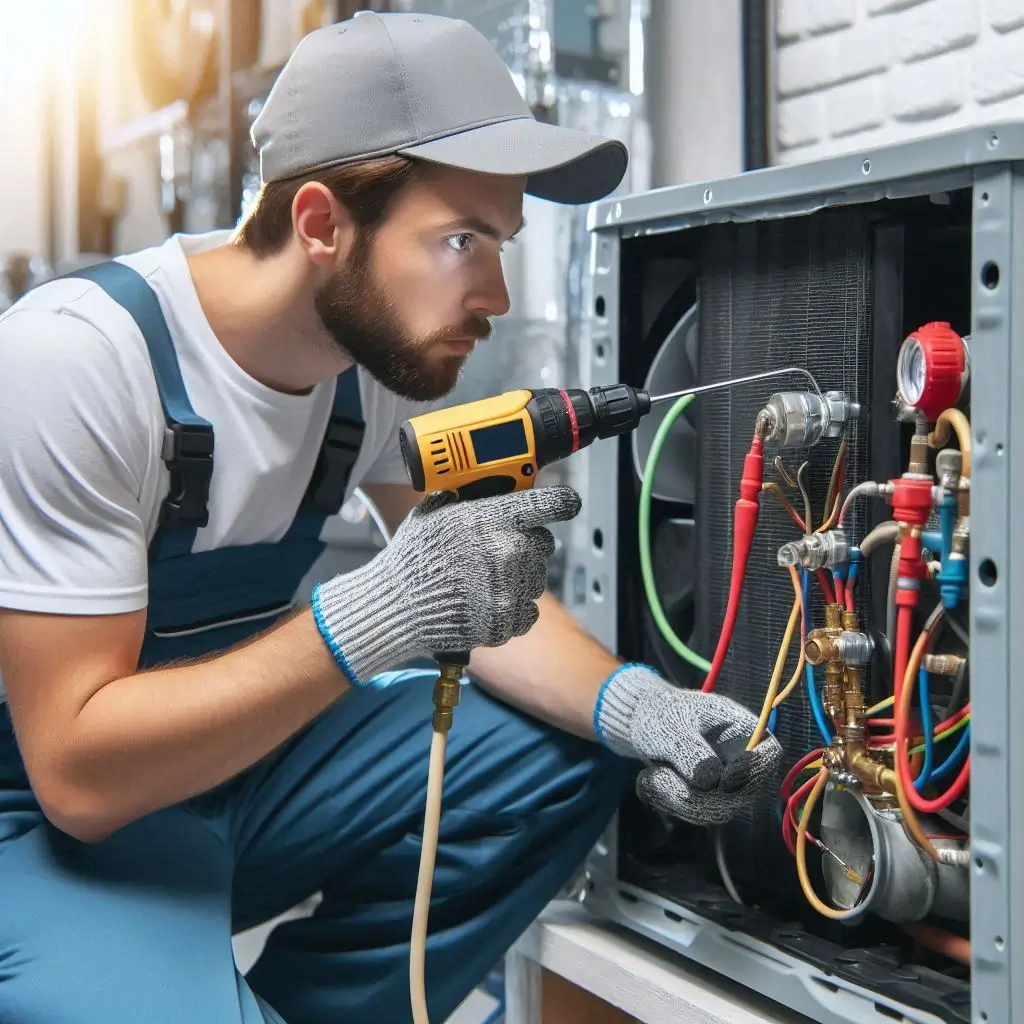
AC Shifting, Repairing, and Fitting Services
Why Shifting Your AC Might Be Necessary
Shifting or relocating an air conditioning unit can be necessary for a variety of reasons. It’s important to understand the circumstances in which moving an AC unit is beneficial to both the performance of the system and the comfort of the space. Here are some common scenarios where AC shifting becomes essential:
-
Changing Home or Office Layout: Sometimes, a change in your home or office layout requires moving the AC unit to a more suitable position. Whether you’re renovating, rearranging furniture, or opening up a space, shifting your AC can ensure optimal airflow and cooling efficiency in the new arrangement.
-
Upgrading to a More Efficient Model: If you’ve purchased a new, more efficient AC model, you might need to shift the old unit to another room or dispose of it. When upgrading, proper relocation or removal of the old system is necessary to ensure the new unit is installed in the optimal location.
-
Improving Cooling Efficiency: Sometimes, the placement of your AC unit is not ideal, leading to reduced cooling efficiency. Shifting the unit to a better location—where airflow is maximized—can significantly enhance the cooling performance and efficiency of your air conditioner.
-
Maintaining Proper Ventilation and Access: For easy maintenance and better airflow, relocating the AC unit might be needed. If the current location has obstructions or restricts airflow, moving the unit to a better spot can make the system more effective in the long run.
-
Seasonal Adjustments: For properties with multiple floors or spaces with varying temperature needs, you might need to shift your AC unit from one room or area to another depending on seasonal temperature changes or needs.
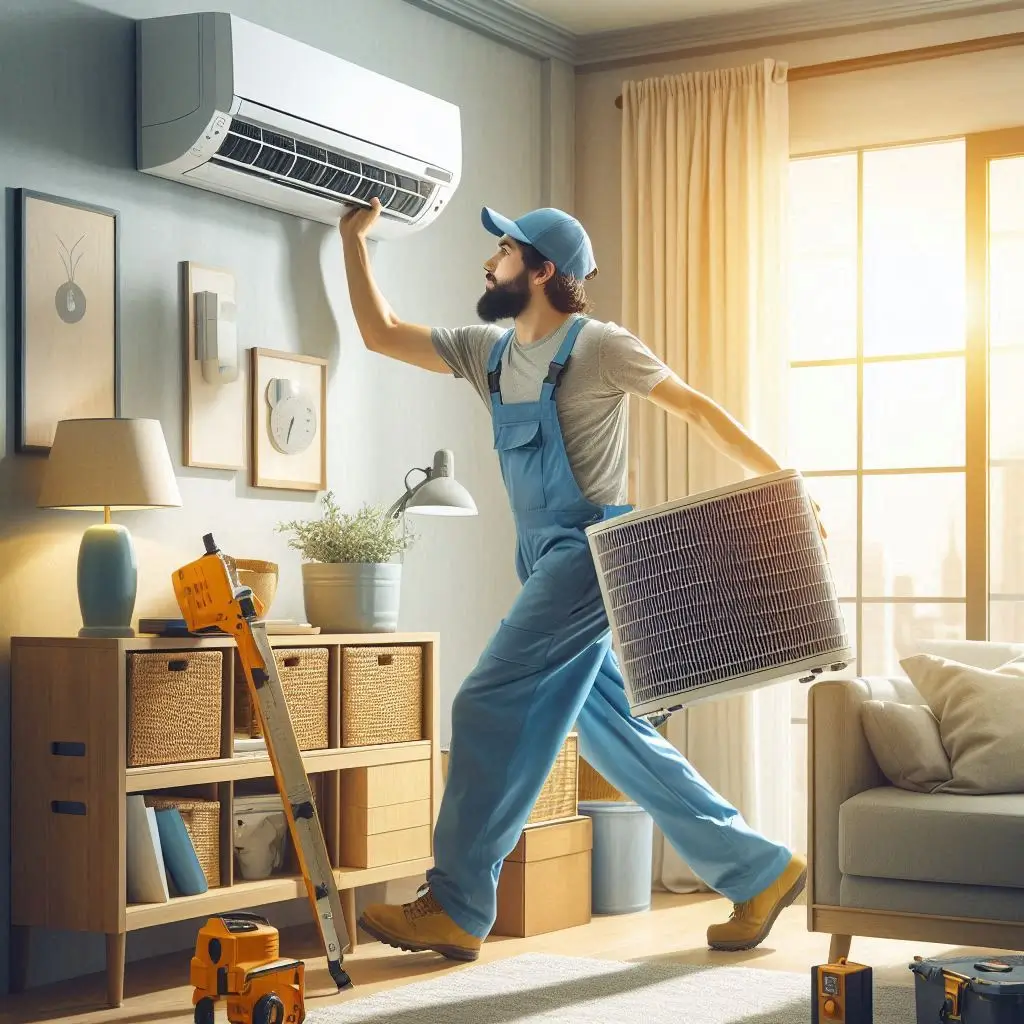
AC Fitting: How Proper Installation Affects Efficiency
AC fitting, or installation, is a critical process that directly impacts the efficiency and longevity of the system. Here are the key aspects of how proper installation can affect your AC’s performance and overall efficiency:
-
Accurate Sizing and Placement: One of the most important factors in AC installation is ensuring the unit is the right size for the room or space it is cooling. A unit that is too large or too small for the space will operate inefficiently, leading to higher energy consumption, excessive wear, and potential system failure.
-
Optimal Airflow: Proper installation ensures that the AC is positioned to maximize airflow. This involves placing the unit in a location where air can circulate freely without obstructions, thus improving the unit’s ability to cool the space effectively. Poor placement, such as near heat sources or blocked vents, will reduce efficiency and lead to uneven cooling.
-
Sealing and Insulation: Proper sealing of refrigerant lines and insulation around ducts is essential to prevent energy loss. Leaky ducts or poorly insulated lines can cause the system to lose cool air, forcing it to work harder and increasing energy bills. Proper fitting guarantees that the system is sealed correctly, reducing energy waste.
-
Level Installation: An AC unit should be installed level to ensure proper drainage and fluid distribution. If the unit is tilted, it may cause issues with refrigerant levels, water leakage, and inefficient cooling. Proper installation ensures the system functions optimally.
-
Electrical Connections and Safety: AC installation involves not just the physical placement but also ensuring the electrical wiring is safely connected according to industry standards. A professionally installed AC will be grounded properly, with no risk of electrical hazards, ensuring the safety and reliability of the system.
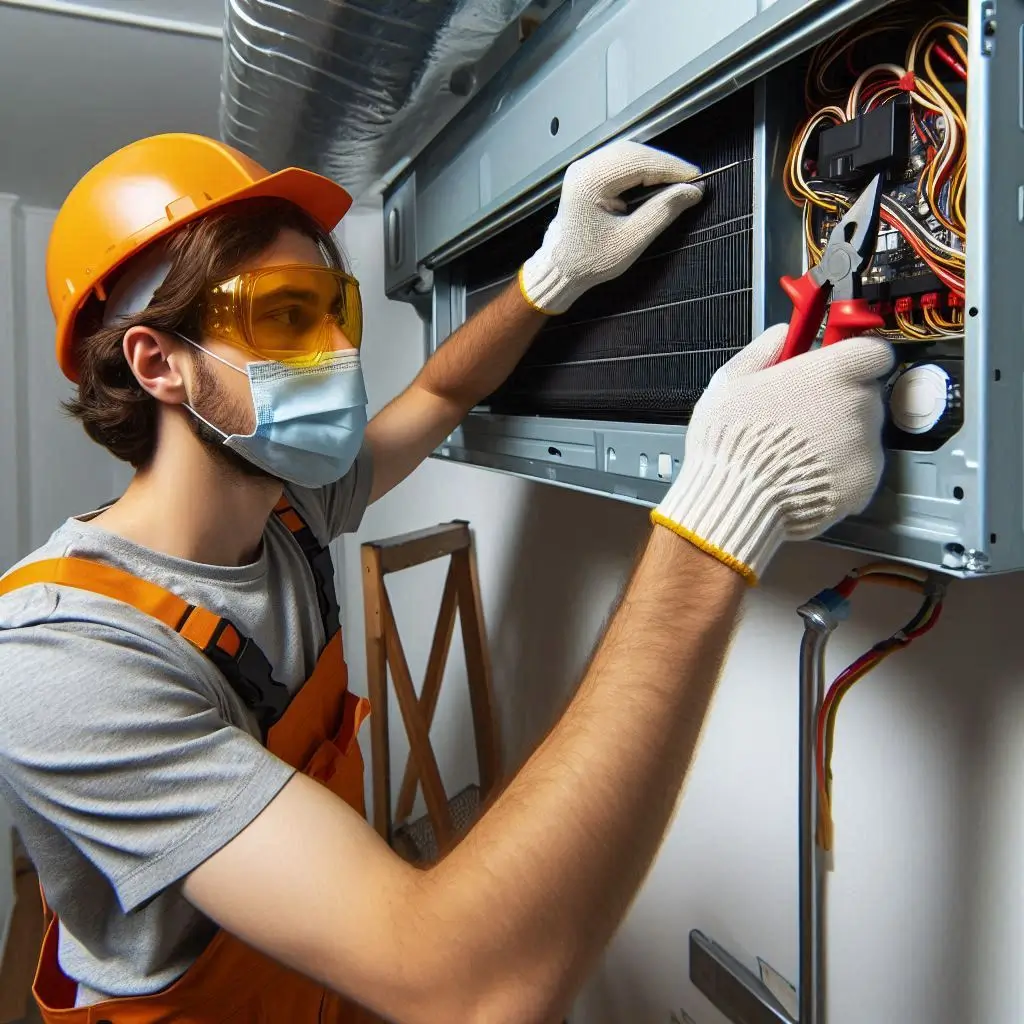
When to Call for Repair or Maintenance During AC Shifting
Shifting your air conditioning unit may expose it to wear and tear, and it is crucial to ensure the system is in good working condition before, during, and after the move. Here’s when you should call for repair or maintenance during AC shifting:
-
Before Shifting: If your AC unit is not functioning correctly, such as not cooling adequately or making unusual noises, it’s essential to call for maintenance before shifting the unit. A technician will inspect the unit, clean it, and make necessary repairs to ensure it operates efficiently after the move.
-
Inspecting the Refrigerant: When shifting an AC unit, it’s important to check the refrigerant levels. Low refrigerant can affect the system’s cooling ability and lead to expensive repairs down the line. If you’re planning to shift your AC, have a professional check and top up the refrigerant levels.
-
Addressing Leaks: If there are any signs of refrigerant or water leakage, call a technician for repair before shifting the unit. Leaks can lead to further damage and inefficiency. A professional will fix the leaks, ensuring the system is leak-free and safe for transport and installation.
-
Checking for Wear and Tear: Shifting an AC unit can sometimes put stress on its components, leading to potential issues. Before moving, it’s best to have the unit inspected for any worn-out parts, such as belts, coils, or fans, and replace them as needed to prevent future breakdowns.
-
Cleaning and Maintenance: Before and after shifting, it’s important to clean the AC unit and check for any blockages or dirt in the filters, coils, and ducts. A professional cleaning service ensures that the system is running at its best, preventing future breakdowns and maintaining energy efficiency.
-
Post-Shifting Inspection: After the unit has been moved, schedule a post-installation inspection to ensure that the unit is still performing as expected. A technician will ensure that no components were damaged during the move, check for any refrigerant loss, and confirm that the AC is cooling efficiently.
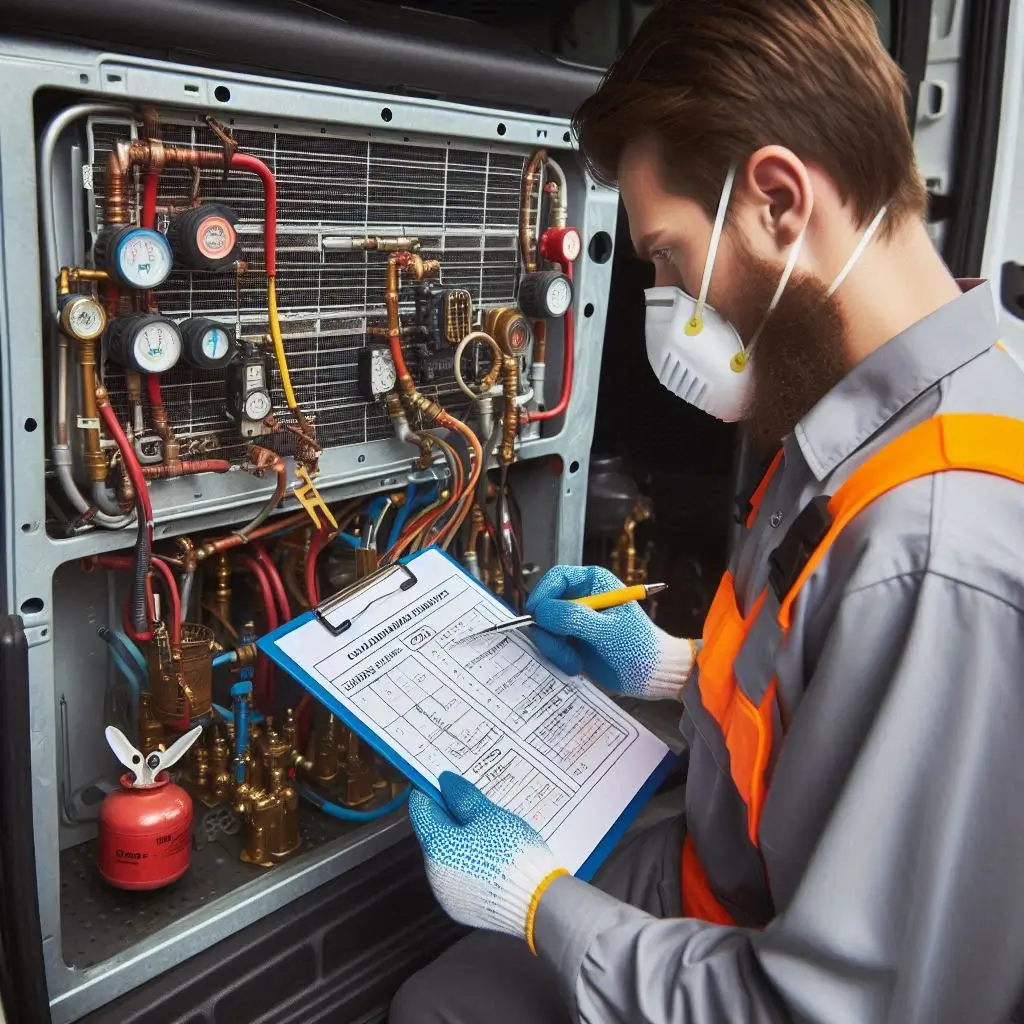
FAQs on AC Shifting, Repairing, and Fitting Services
1. Why do I need to shift my AC unit?
Shifting your AC unit may be necessary for several reasons, such as improving cooling efficiency, making room for new furniture or appliances, or optimizing airflow. When an AC unit is relocated to a more suitable position, it can better distribute cool air, preventing energy loss and ensuring comfort. Shifting is also required when upgrading to a newer model, or if the unit’s current location is inefficient or obstructed.
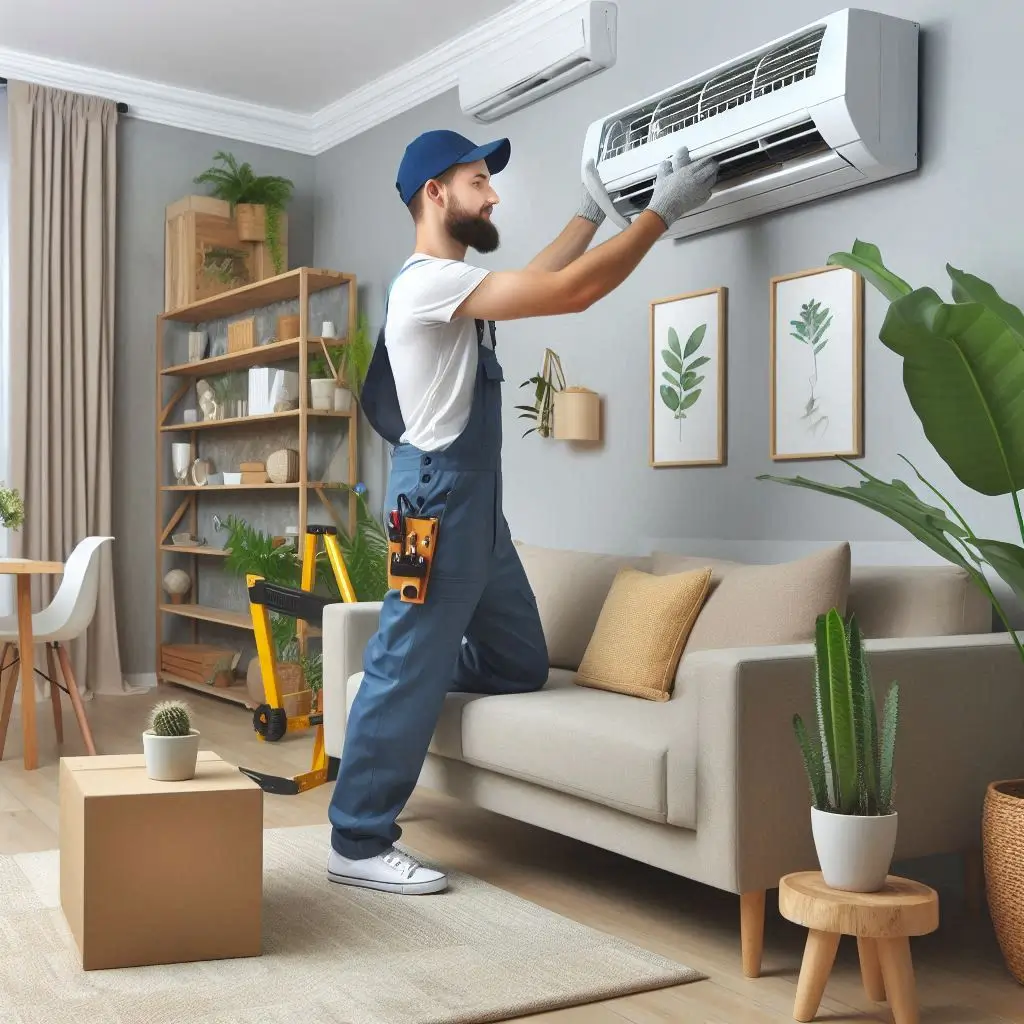
2. What are the benefits of professional AC installation?
Professional AC installation ensures that your unit is set up correctly, maximizing its efficiency and lifespan. Experts ensure the unit is correctly sized for your space, positioned for optimal airflow, and properly sealed to prevent energy loss. Incorrect installation can lead to poor performance, higher energy bills, and more frequent breakdowns. A proper installation guarantees your AC system works efficiently, helping you save money on energy costs and maintenance in the long run.
3. How do I know when to call for AC maintenance?
Regular AC maintenance is crucial for optimal performance and to prevent unexpected breakdowns. Here are some signs that indicate your unit needs professional attention:
- Strange Noises: If your AC is making buzzing, rattling, or grinding noises, it could indicate issues with the internal components.
- Warm Air: If your AC is blowing warm air instead of cold, the refrigerant levels may be low, or there may be an issue with the compressor.
- Water Leaks: Water pooling around the unit could indicate a blocked drain line, frozen evaporator coils, or a refrigerant leak.
- Increased Energy Bills: A sudden spike in energy consumption without any other changes can be a sign that your AC is working inefficiently.
- Poor Airflow: Weak or inconsistent airflow is a sign that the air filter, coils, or ductwork might need attention.
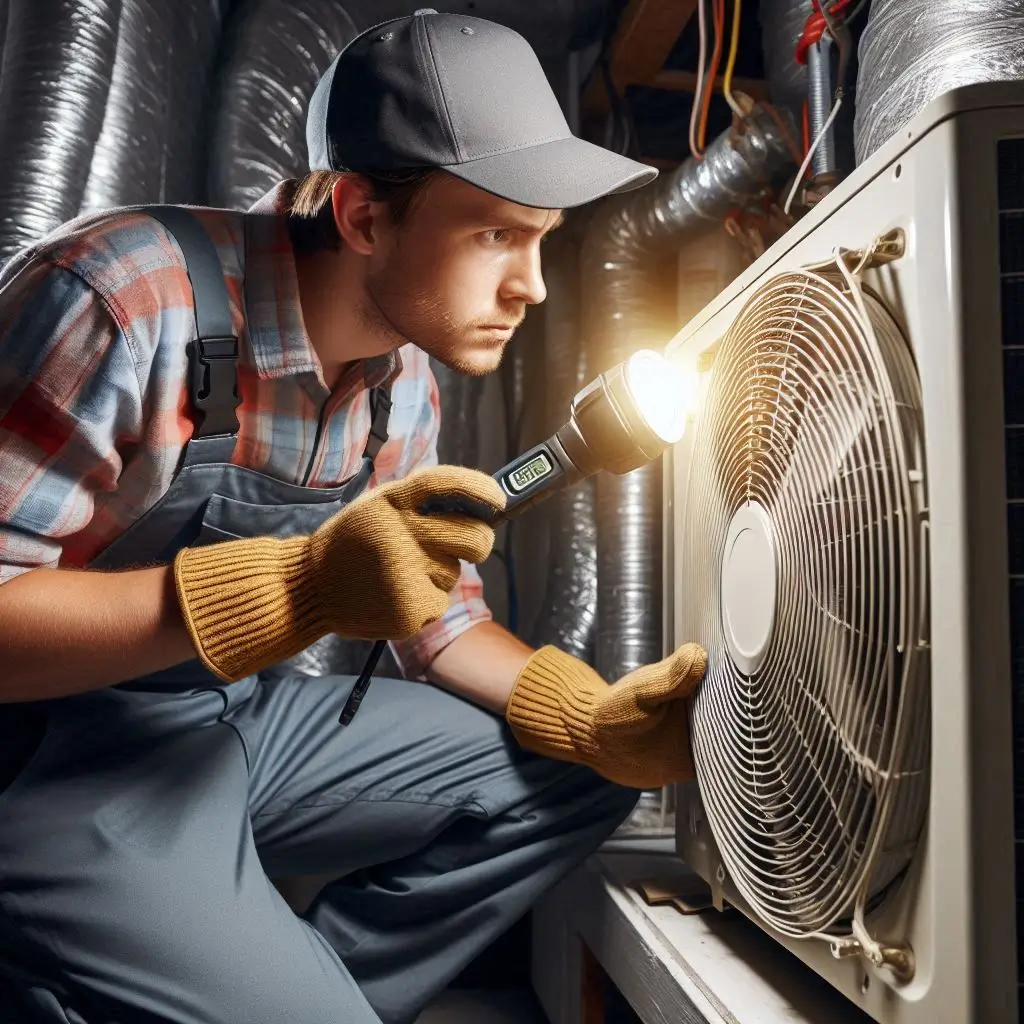
4. What should I do if my AC unit is leaking gas?
If your AC unit is leaking gas, it’s essential to call a professional technician immediately. Gas leakage can reduce the efficiency of your AC, leading to higher energy consumption and potential harm to the environment. Common causes of gas leakage include worn-out seals, broken pipes, or damage to the refrigerant lines. A technician will detect the leak, repair it, and refill the refrigerant to ensure your AC operates smoothly. Ignoring gas leaks can lead to further damage to the unit and costly repairs down the line.
5. Can I repair or move my AC unit myself?
While some minor maintenance tasks, like changing filters, can be handled by homeowners, AC repair and shifting should always be done by professionals. Improper handling during repair or moving can damage the unit, void the warranty, or result in inefficient cooling. HVAC technicians have the necessary training and experience to diagnose issues, handle refrigerants, and ensure that the system is safely relocated. Moving the AC without professional help can also cause internal damage, such as cracked pipes or improper refrigerant flow.

6. What steps should I take to ensure proper AC fitting?
Proper AC fitting involves more than just placing the unit in a room. Several key factors contribute to effective installation:
- Correct Sizing: Ensure the AC is the right size for the room. An undersized unit will struggle to cool the space, while an oversized unit will waste energy.
- Optimal Placement: Place the unit in a location where airflow is unobstructed and cool air can circulate freely.
- Sealing and Insulation: Make sure refrigerant lines and ducts are well-sealed and insulated to prevent energy loss and reduce wear on the system.
- Electrical Safety: Proper electrical connections and grounding are essential to prevent safety hazards and ensure smooth operation.
Professional technicians will assess all these factors during installation to ensure that your system operates efficiently and safely.
Conclusion:
In conclusion, maintaining, repairing, and properly installing your AC system are crucial steps to ensure long-lasting comfort and energy efficiency in your home or office. Whether it’s shifting your AC for better performance, addressing common repair issues, or ensuring professional installation, taking prompt action can help you avoid costly breakdowns and energy inefficiencies. Regular maintenance and timely gas leakage repairs will not only improve the lifespan of your unit but also contribute to a healthier indoor environment. Always trust professional HVAC services for your AC needs to guarantee optimal performance and peace of mind. By addressing these key aspects, you can enjoy reliable and efficient cooling for years to come.

